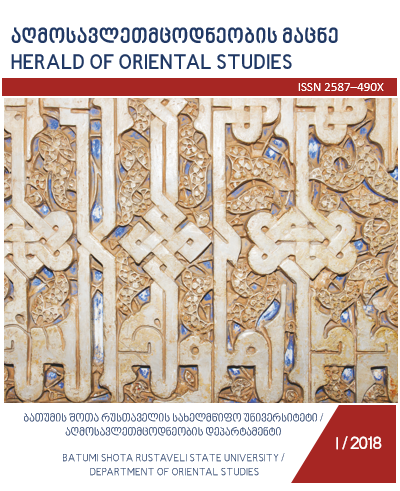Strategic Relationships of Turkey-Azerbaijan and Georgia
DOI:
https://doi.org/10.61671/hos.1.2018.2809Keywords:
Turkey-Azerbaijan and GeorgiaAbstract
The union of Turkey, Georgia and Azerbaijan creates strategic triangle, the relationship of which conditions the necessity of gaining a vital area for these countries. After decomposition of the Soviet Union, from 1990 up to nowadays, official Ankara realizes quite pragmatic and stable policy in South Caucasus. Turkey prefers the relationships with Azerbaijan. This is explained by as cultural and linguistic nearness so significant geopolitical location of Azerbaijan. The commencement of realization of the projects of “Bako-Tbilisi- Ceyhan” oil pipeline and “Bako-Tbilisi-Erzurum” gas pipeline, also “Bako-Tbilisi-Kars” railway project, acquired great economic (also political) importance to South Caucasus, that is very important for the region. The wish of Turkey was to execute energetic and transport corridor function between Europe and Caspian regions. Logical result of this ambition was significantly increased interest towards Georgia, that is connective link between Turkey and Azerbaijan, also between Central Asia.
The necessity of direct connection with Azerbaijan dictates Turkey that it needs minimum one from two – controlling of Georgia of Armenia. Because of the control of Armenia by the Russia and Armenia – Turkey historical disagreement, Ankara decided to choose the strategy of collaboration with Georgia and isolation from Armenia. From the point of view of independence and development perspectives of Azerbaijan, Turkey is very important partner for Baku. Assimilation of energetic corridor function with Turkey and the perspectives of Karabakh conflict, dictates to Baku that it vitally needs to make strategic partnership with Ankara. Georgia, of course plays a significant player in this circle , which have its own interests.
The aim of the theme is to analyze correctly historic realities of formation of strategic partnership of Turkey and Azerbaijan, the spheres of overlap and conflict of interests of states and to define Georgian role in this sphere.


































